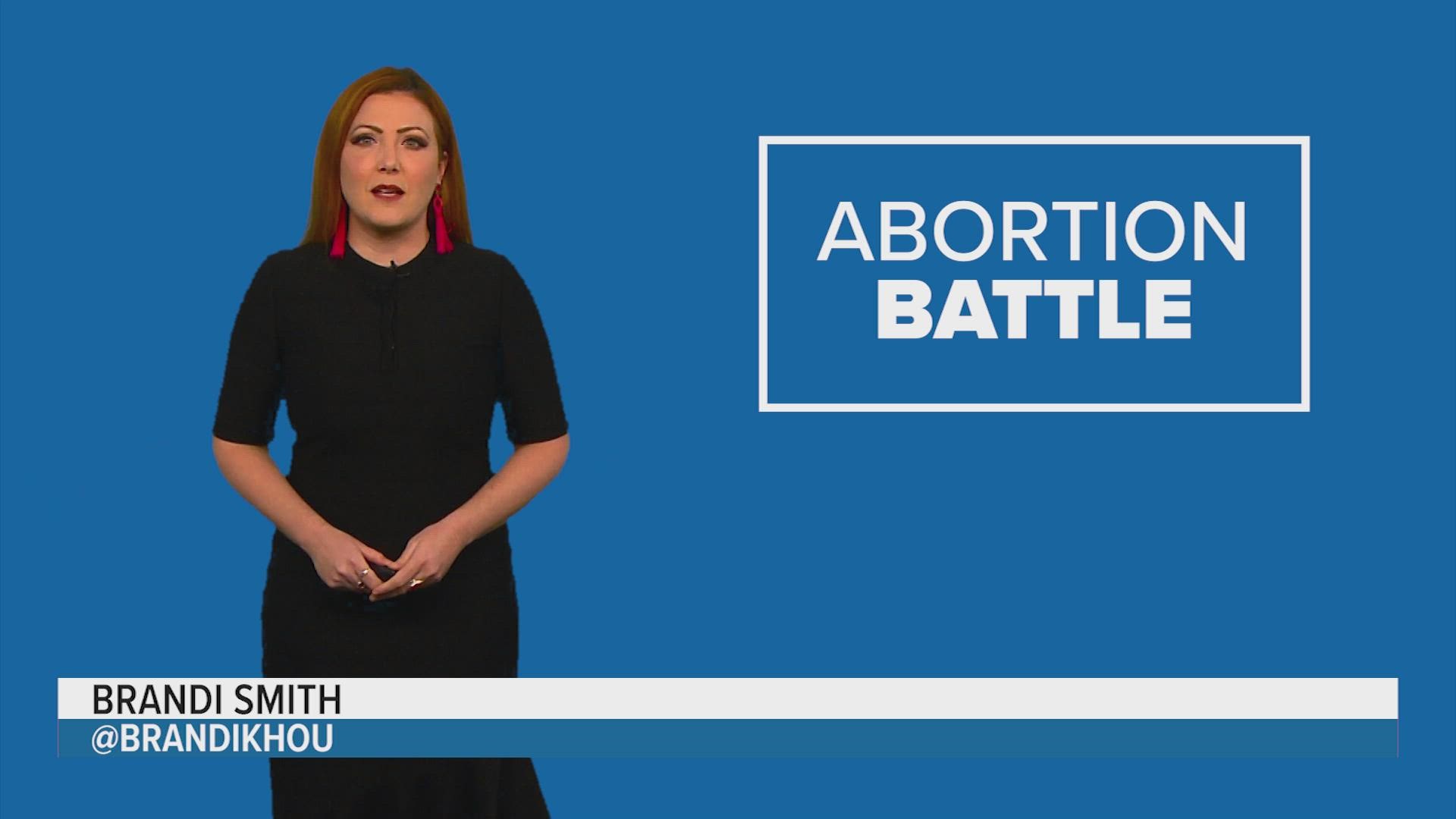HOUSTON — The Supreme Court heard arguments on Wednesday in the Mississippi case challenging Roe v. Wade. This comes just a month after the high court took up Senate Bill 8, known as "The Texas Heartbeat Act."
So what’s the difference?
Mississippi abortion law
The Mississippi case is Dobbs v. Jackson Women’s Health Organization and it’s challenging a law that bans most abortions after 15 weeks. According to the CDC, more than 95 percent of abortions happened at or before that point in 2019.
The law, which was passed in 2018, does include exceptions for medical emergencies or severe fetal abnormality, but not rape or incest.
It's enforced by the state, which is why the case is drawing comparisons to Roe v. Wade. In that 1973 decision, justices ruled states can’t ban abortions before fetal viability, which most experts consider to be around 23 to 24 weeks.
Texas Senate Bill 8
Texas' most recent abortion bill actually faces two challenges in the Supreme Court. The Department of Justice is suing Texas over the law, but justices really seemed to center on Whole Woman’s Health v. Jackson when they heard arguments on Nov. 1.
SB8 bans abortions around 6 weeks or when a “heartbeat” is detected. (Experts say using the word “heartbeat” is misleading since the activity detected is electrical impulses, not a true heartbeat, as the embryo’s heart isn’t fully developed.) That same CDC report says roughly 43 percent of abortions happen at or before 6 weeks.
Texas lawmakers just passed SB8 in 2021 and, similar to the Mississippi law, it does not make exceptions for rape or incest, only “medical emergencies.”
The most significant difference between these two is enforcement. SB8 allows private citizens to sue anyone who aids or abets a woman getting an abortion once a “heartbeat” is detected. The big question mark here is the constitutionality of that enforcement mechanism.
The Mississippi law has been blocked by lower courts, so it’s not in effect. SB8 very much is, after the Supreme Court declined to step in sooner. Now the future of both is in the hands of the nine Supreme Court justices.

